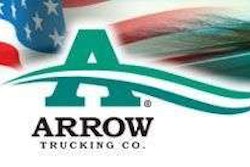Numbers business
Saving receipts and keeping good records are essential to your successful operation
As an owner-operator, you are a small business on wheels. Running your small business successfully requires you to stay on top of record-keeping on the road and back home.
Smart record-keeping begins with collecting business receipts. Make a habit of getting receipts for every expense, from fuel to tires to meals. Write the nature of the expense on the receipt if it’s not apparent.
Traveling with an accordion folder with individual pockets or a file box with labeled files might work best, while the simplest solution might be a legal-size envelope marked with the dates of your trip. The point is to consistently keep business receipts in something, rather than simply tossing receipts on your dashboard or tucking them in your truck visor. “Many of my clients just send in a manila envelope filled with receipts,” says Rick McNeill of Motor Carrier Consultants, who organizes the documents in keeping records for purposes such as fuel tax reporting.
When you return home, put the envelope in a filing cabinet or more permanent file where you keep your tax returns and financial records. If time permits, place the receipts in separate folders for maintenance, fuel, licenses, insurance and so on. This will make it easier at tax time when you or your tax adviser will need to categorize expenses.
By saving receipts and logging expenses, you’ll also make it easier to calculate performance measures such as miles per gallon and cost per mile.
It can also be handled electronically. In addition to keeping the receipts, record them in Excel or another database program on your laptop computer. Compile expenses by categories as the year unfolds.
Expense-tracking software is available through sources such as Largo Software (www.largosoftware.com), Partners in Trucking (www.truckbytes.com), HammerLane Trucking Software (www.hammerlane.com), DieselBoss (www.dieselboss.com) and PBS Tax & Bookkeeping (www.pbstax.com, click “Truck Books”), among others.
Record keeping tips
• Get receipts for all purchases and make note of the expense if it’s not apparent.
• Photocopy receipts.
• Keep a separate bank account for your business.
• Use a separate credit card for business expenses.
• Maintain a truck mileage log by hand or electronically.
• Keep a file for truck maintenance — and a separate one if you own a trailer.
• Reconcile checking account and credit card statements monthly.
• Record long-distance calls placed to you from your home phone.
• Avoid cash purchases that don’t generate a receipt.
Super record keeper
When it comes to record-keeping, few measure up to Greg Decker, an owner-operator from Alberta, Canada, who runs 75 percent of his miles in the United States.
While many independent contractors keep track of their fuel purchases and maintenance expenses, Decker records and monitors maintenance on both his 2008 Volvo tractor and 2002 Utility trailer. He has separate computer files for each time he buys fuel or grabs a load assignment, for the past 2.5 years. “I keep track of load assignments to make sure I get paid the correct amount.”
He also runs files of his air suspension system weights to compare with scale weights and how many times his diesel particulate filter system regenerates, because he’s had problems with the system.
Even Decker’s RigMaster auxiliary power unit merits a separate file. He tracks maintenance and the number of generator hours on each tank of fuel. He tracks expenses, such as satellite rent and licensing, charged through Caneda Transport, where he’s been leased for 12 years. He uses Driversdailylogbook.com to keep his hours.
Decker estimates he devotes close to 30 hours monthly on his records. He says a day doesn’t pass without him calling up one of his programs for updating.
On the road, Decker puts receipts in plastic envelopes and transfers them to two file cabinets in his office at home when he returns every 10 to 11 days. He credits his wife for organizing the filing system. “Everything that we’ve touched for work has its own file,” he says.
Decker says he sends all invoices and receipts straight to his accountant, who provides him with quarterly reports detailing information such as spending on maintenance and tires and his per-mile fuel cost.










